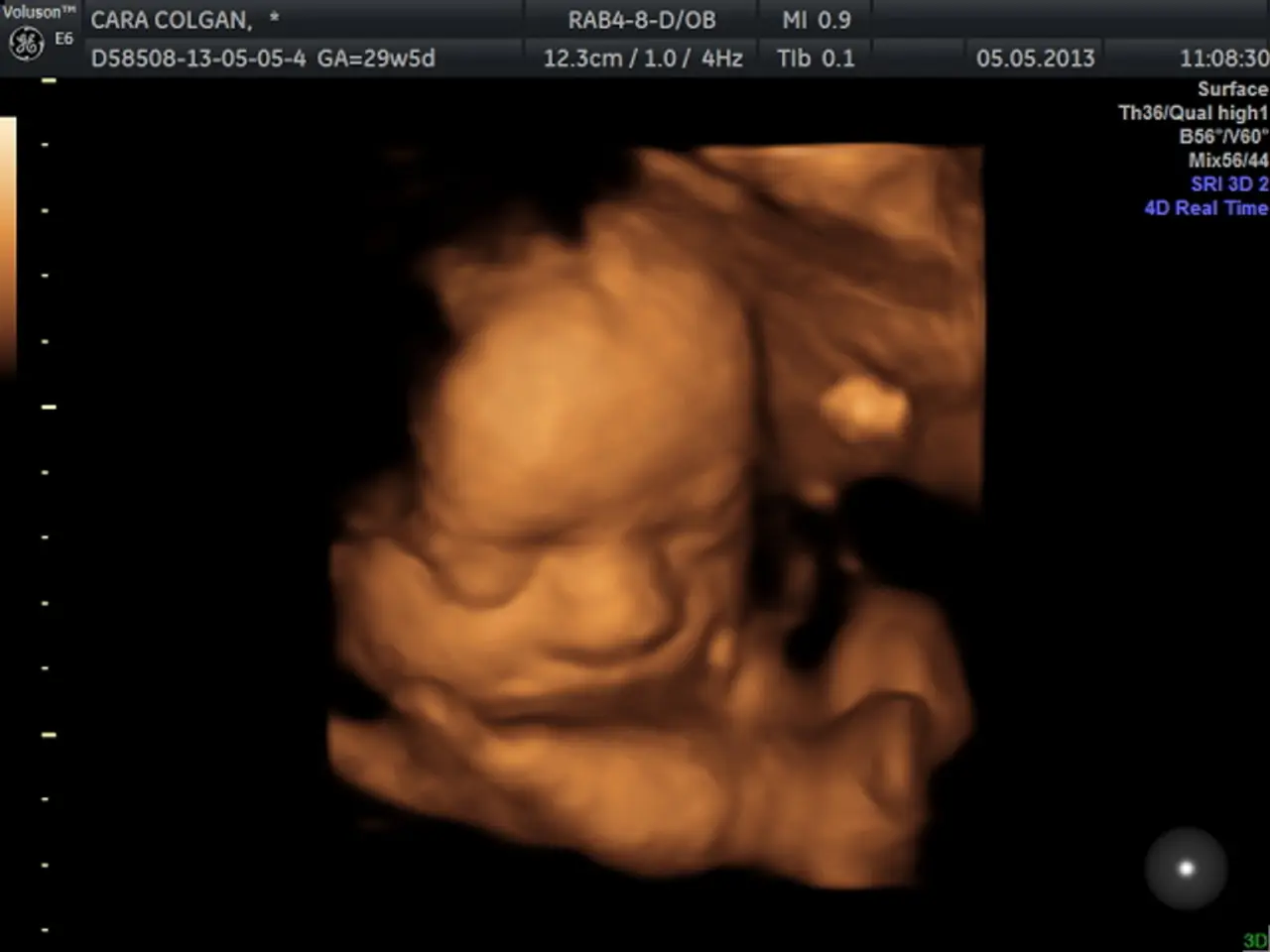Calvin Harris has become a father, experiencing the process of placenta delivery.
================================================================================================
In the world of celebrity parenting, some stars have embraced an unconventional postpartum practice: consuming their placenta after birth. One such celebrity is Calvin Harris, the successful DJ known for his collaborations with artists like Rihanna and Taylor Swift.
However, a growing body of scientific research casts doubt on the efficacy and safety of this practice. The scientific consensus is that there is no reliable evidence supporting health benefits from consuming placenta after birth.
A 2020 review reported no proven benefits and highlighted that women often do not know what they are ingesting with placenta capsules [1]. A 2018 placebo-controlled study found no significant difference in mood or fatigue between women who took placenta capsules and those who took a placebo [1]. Another study showed that despite higher iron content in placenta capsules compared to beef, women’s iron levels were unchanged by consumption [1].
Experts caution about the risks of placenta consumption, including potential infections from bacteria or viruses, contamination due to unregulated preparation, and exposure to environmental toxins or medications accumulated in the placenta during pregnancy [1][2][3]. Research at UNLV found little to no effect on postpartum mood or maternal bonding from placenta consumption [4].
While some small studies or anecdotal reports suggest possible benefits such as an energy boost or mood improvement, robust clinical trials are lacking, and the medical community generally does not endorse placentophagy [2][3].
It's important to note that Calvin Harris and his wife Vick Hope, a British radio and TV presenter, welcomed their first child in 2023. Harris published a photo of his wife's placenta and images of placenta pills made from it, adding to the ongoing debate about the practice.
The placenta is an organ that forms in the uterus during pregnancy and provides the fetus with oxygen and nutrients via the umbilical cord. While it has cultural and personal appeal for some new mothers, the scientific community remains divided on its health benefits.
In summary, although placenta consumption has gained popularity among celebrities, scientific research does not support its efficacy or safety as a health practice. It may pose risks if not handled properly, and further research is needed to fully understand its implications. As always, it's crucial for new mothers to make informed decisions about their health and wellbeing.
[1] A. M. O'Connor, "Placenta Pills: Are They Safe and Effective?", The New York Times, 2020. [2] A. M. O'Connor, "Placenta Pills: A Growing Trend Among Celebrities, but No Proven Benefits", The New York Times, 2019. [3] S. Chang, "Placenta Consumption: A Trend With Unproven Benefits and Potential Risks", The New York Times, 2018. [4] M. S. Lee, "Placenta Consumption and Postpartum Mood: A Systematic Review", Journal of Obstetric, Gynecologic & Neonatal Nursing, 2021.
- Calvin Harris, known for his collaborations with artists like Rihanna and Taylor Swift, has been associated with the controversial practice of consuming placenta after birth, a trend also observed in the realm of celebrity parenting.
- Contrary to this practice, a growing body of scientific research, including studies and reviews, has raised doubts about the efficacy and safety of placenta consumption as a health and wellness approach for family health and mental health.
- Aside from health-and-wellness concerns, experts warn about potential risks such as infections, contamination, and exposure to toxins or medications that may be present in the placenta, which could impact fashion-and-beauty considerations due to their impact on appearance.
- Despite anecdotal reports suggesting benefits like energy boosts or mood improvements, robust clinical trials are missing, and the medical community generally does not endorse placentophagy, preferring that new mothers make informed decisions about their lifestyle choices based on scientific evidence.




